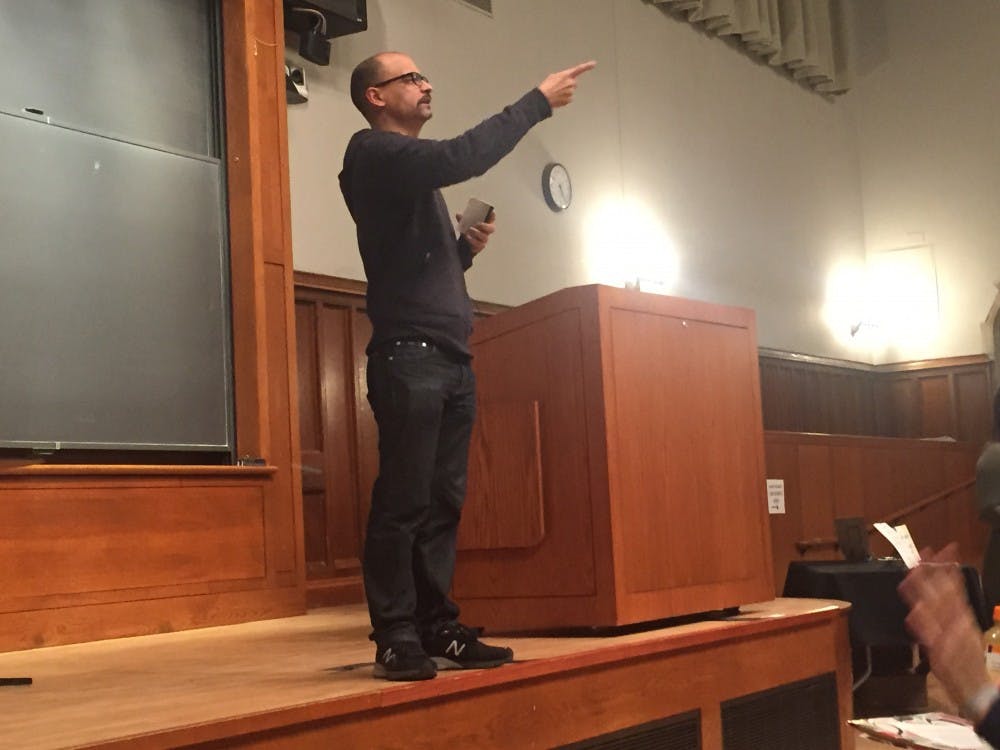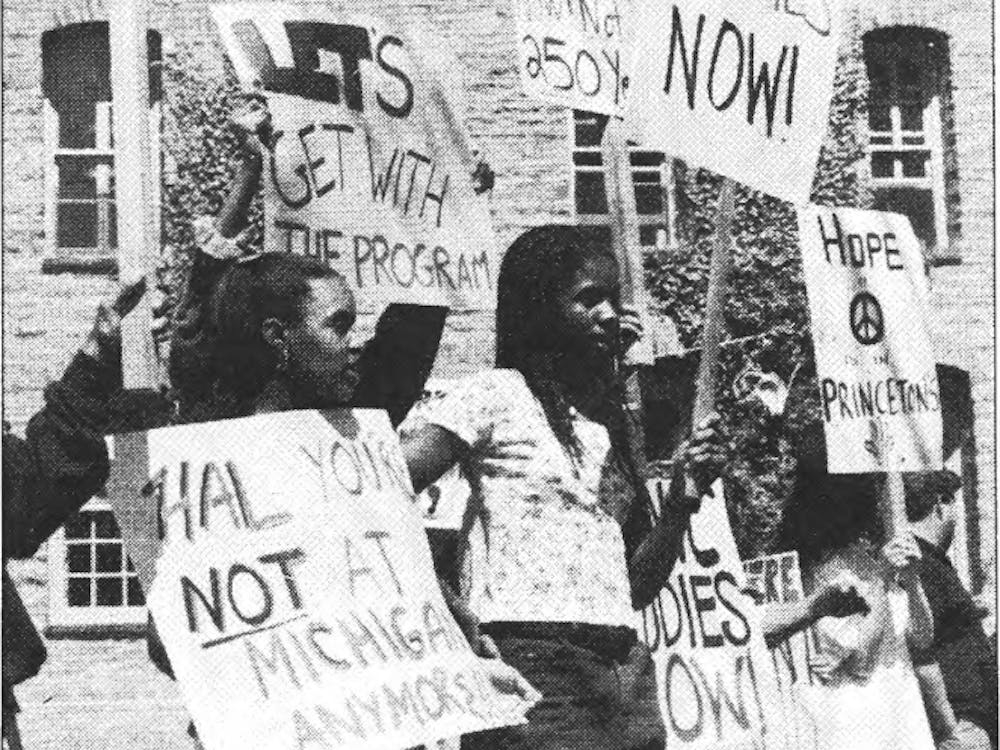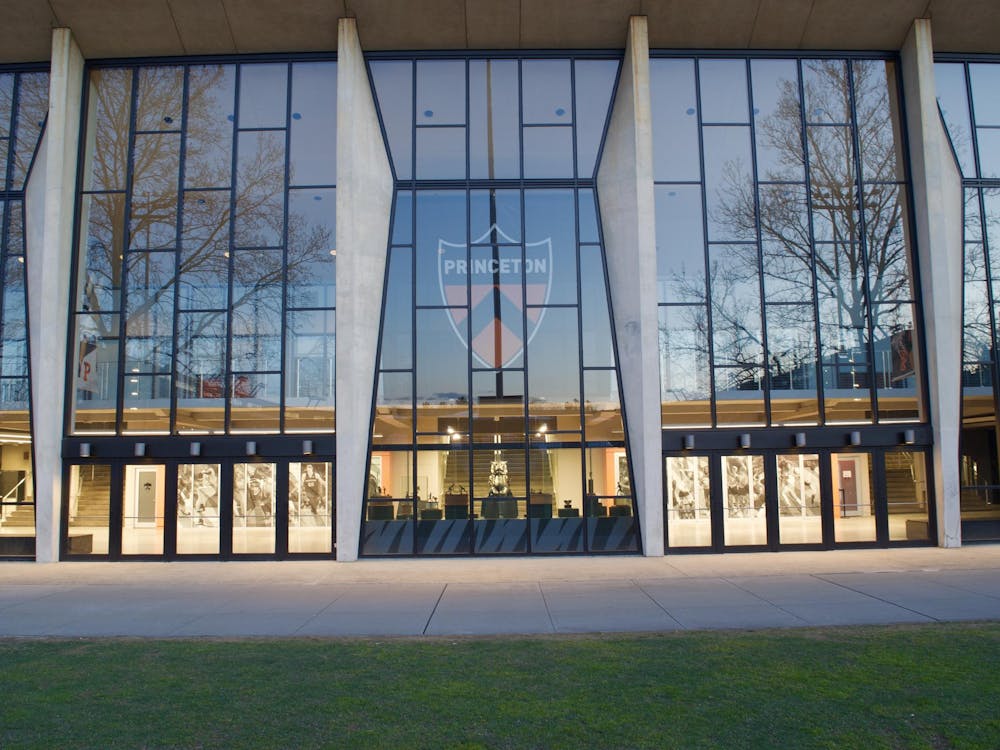Donning dark jeans, a black hoodie, and gray sneakers, Junot Díaz relied on the simplicity of his presentation and the power of his speech in order to captivate an audience of University students, professors, and community members alike.
On Friday, Feb. 24, approximately 300 people gathered to hear acclaimed writer and activist Junot Díaz speak on issues including white supremacy and racism. The audience listened as Diaz discussed how to combat these societal plagues using activism.
After brief remarks and introductions by PLA members, Junot Díaz took the stage. Although Díaz is a Pulitzer Prize-winning author, whose novels “Drown” (1996), “The Brief Wondrous Life of Oscar Wao” (2007), and “This is How You Lose Her” (2012) garnered critical acclaim around the world, he made clear he would not use his talk Friday to discuss his life as a writer.
“Most of you who are gathered here know me primarily as an artist, a literary artist. That came pretty late in my identity, pretty late in my life,” Díaz said. “I began — even before I was a writer, actually — began by being someone who was involved in community work, which is commonly known as activism.”
As a Dominican immigrant who moved to the United States at the age of six, Díaz explained the significance of community work in his life, focusing in on how it impacted his college experience.
“It’s [community work] more or less what first captivated my imagination and first commanded my commitments, specifically when I got to university,” he said.
Díaz is a graduate of Rutgers University and was the first person in his family to attend college. He detailed his struggles as a first-generation student of color adjusting to a completely new environment upon arriving at college, even though he had already gone through a similar process when he immigrated to America.
“I never understood how profoundly my first experience with immigration would play into entering university,” Díaz said. “For many of us, university becomes our second immigrant experience.”
He emphasized the importance of forming a community in order to deal with the “challenging and deeply, deeply bewildering” presence of white supremacy, microaggressions, and racism in a predominately white academic institution.
He noted there is a confusion of social and cultural capital with intelligence in the university system, and that as he went through school as a student of color, it became clear that this confusion would bring with it an uphill battle. “This was an excruciatingly painful process … you can’t deal with this kind of pain and this kind of suffering by yourself,” he said.
Díaz described his development of a community within his college in order to cope with these issues, adding that it was not enough for this group to stay focused on what was troubling them. Rather, they needed to direct their attention to community work, because “what you come into contact at that moment [of helping others] is not with your pain, and it’s not with your disenfranchisement, but you actually come in contact with your agency,” he said.
“One of the things that really helped us those years when we were trying to get through school, was that every single time that we would feel overwhelmed and we would feel like things were too hard and felt like we didn’t have a lot of resources, what actually ended up giving us the resources was anti-intuitive,” Díaz said. “It was, in fact, turning around and doing a little bit of work, helping other people."
He later addressed the nature of coloniality and how it impacts us, and also discussed the conflict of external versus internal activism.
Following his talk was a Q & A in which students and community members asked questions dealing with topics of race and inclusivity on college campuses.
He concluded the event with one final piece of advice on how to wrestle with the issues to which he spoke.
“This is a psychological game. But this game can be beat … You beat it once when you were little, when you didn’t have shit. Now you’ve got everything … Your only job, really, is to believe. Good luck,” he said.
Díaz took time afterwards to sign books and pose for pictures.
Samuel Vilchez Santiago ’19, co-president of PLA, described his motivation to bring Díaz to campus.
“After the Trump election, [PLA] decided that we needed to bring more known Latino public figures to campus so that we can start creating a bigger conversation with our Latino community but also with our allies,” Santiago said.
The other PLA co-president, Kauribel Javier ’19, explained how PLA “jumped at the opportunity to bring him here.”
On a personal note, Javier spoke of her encounter with Díaz’s work in school.
“He was the first time that I ever saw my Dominican identity represented in a book … so I felt a very special connection to him,” she stated.
Javier also spoke to the importance of having groups like PLA and Princeton University Latinx Perspective on campus.
“I think it’s also important to diversify what it means to be Latinx at the university level,” Javier said. “Because I think a lot of the time people just see as us this, like, pan-ethnic organization, which is what [PLA] is, but I think it’s also important to emphasize that we come from different countries and that shapes our experiences.”
Ana Cristina Alonso Soria, a first-year graduate student at the Wilson School, has lived in Mexico for most of her life and attended the event because she is “really interested in the way Junot Díaz has … explained through his literature what it’s like to be an immigrant with Latin origins.”
She noted that Díaz’s speech “was really illuminating and fascinating,” and that she “certainly did not expect him to be so direct in terms of, like, activism and the entire process that he has gone through.”
Soria also admires Díaz for “trying to discover his own identity and how he has embraced … being a part of the larger academic community [while] also retaining his roots.”
Adalberto Rosado ’19, a member of PLA, noted his personal connection to Díaz’s work.
“I’m Dominican as well, so a lot of what he wrote in his book ‘Drown,’ or all three of his books … really resonated with me,” he said.
Rosado also spoke to the positive impact bringing speakers like Díaz to campus can have on the entire school.
“I think things like this should be more mainstream. I think that having people like him come kind of help us to see how places like Princeton are not perfect … and ways that Princeton can be a little messed up, but also ways to improve it” Rosado said. He added that this kind of event “really helps to see how can we make this place more welcoming, how can we make this place a better living environment for everyone.”
The event, titled “Activism and Academia: A Conversation with Junot Díaz,” was part of the Campus Conversations on Identity series and was co-sponsored by Princeton Latinos y Amigos and the Carl A. Fields Center for Equality and Cultural Understanding, among others. The event took place in McCosh 50 at 4:30 p.m.









